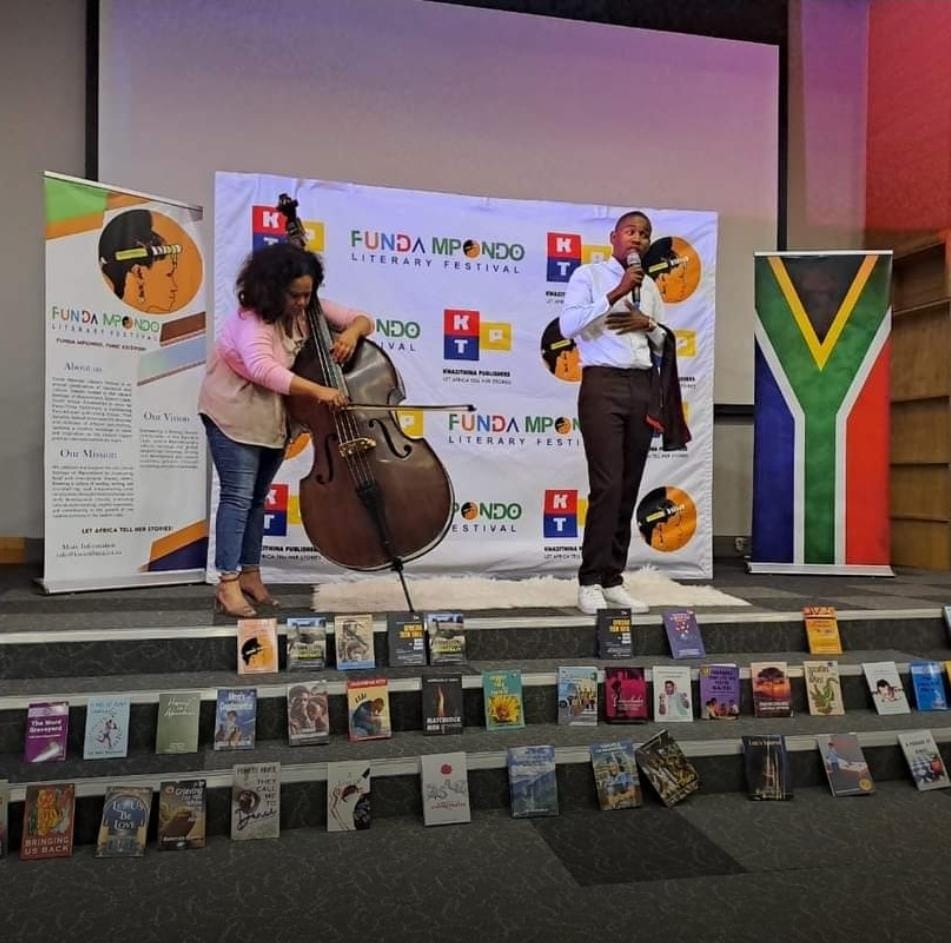By Duncan Mnisi
Port St Johns & Lusikisiki, Eastern Cape – In an era where global narratives often overshadow local voices, the Funda Mpondo Literary Festival stands as a vibrant platform dedicated to amplifying the stories, heritage, and languages of South Africa’s rural communities. Led by Nomawele Njongo under the auspices of KwaziThina Publishers, the festival is not just an event but a movement to reclaim and celebrate African cultural identity through literature and storytelling.
The 2025 edition of the Funda Mpondo Literary Festival will take place from 2–4 September in Port St Johns and at the Lusikisiki Health Resource Centre. It is supported by the National Heritage Council, Brand South Africa, the Eastern Cape Provincial Arts and Culture Council, and other partners.
In an interview, Njongo emphasized the festival’s pivotal role in fostering cultural pride and intellectual exchange. “The festival positions rural South Africa at the heart of cultural and literary dialogue,” she explained. “Its significance lies in its ability to use storytelling, heritage, and literature as powerful tools for development, education, and empowerment.”
Founded with a vision to elevate rural voices, the festival recognizes storytelling as a vital means of cultural preservation and innovation. Njongo noted that beyond being a celebration of heritage, it also seeks to create pathways for collaboration among writers, storytellers, and academics across Africa. “We want to inspire a future where literature is a catalyst for identity, healing, and nation-building,” she added.
One of the festival’s major achievements has been the establishment of the IsiMpondo Language Board, created to safeguard and revitalize indigenous languages. This initiative promotes documentation, community-based transmission, and research collaborations, ensuring that native tongues such as IsiMpondo are not only preserved but thrive in modern spaces.
Reflecting on the festival’s roots, Njongo shared that its inception was driven by a desire to reclaim South Africa’s rich cultural and intellectual wealth, often overlooked amid national and international narratives.
“Since launching in 2022, the festival has evolved into an international platform connecting rural South Africa with a global audience,” she said. “It’s about creating a space where heritage meets modern expression.”
The festival’s highlights include intergenerational dialogues, heritage panels, and the celebration of African storytelling traditions through performances and discussions. These moments not only honor the past but also pave the way for innovative cultural expressions.
Looking ahead, Njongo expressed hope that the festival will continue to grow into a catalyst for national and regional cultural ecosystems. “Our long-term vision is to build an environment where literature, heritage, and creativity drive unity, education, and international collaboration,” she stated.
As South Africa and the wider African continent grapple with the challenges of cultural erosion and linguistic loss, initiatives like the Funda Mpondo Literary Festival remind us of the enduring power of storytelling. They reinforce that preserving and promoting indigenous voices is essential to nurturing a truly inclusive and vibrant cultural landscape.







